Did you know that over 70% of temperature controlled HGV incidents result in significant financial losses when proper insurance coverage isn’t in place?
Navigating the complex world of temperature controlled transport insurance can feel overwhelming for fleet managers and owner operators alike. With perishable goods at stake and strict regulatory requirements to meet, having the right cover isn’t just recommended, it’s absolutely essential!
Temperature controlled HGV transport businesses require the correct and proper commercial vehicle insurance, adequate goods in transit cover, public liability insurance and potentially employees liability insurance depending on how your business is structured.
In this guide, we’ll explore everything you need to know about protecting your temperature controlled HGV operations in the UK, from basic legal requirements to specialised coverage options that could save your business from catastrophic losses.

Legal Requirements for Temperature Controlled HGV Insurance in the UK
The UK maintains strict regulations when it comes to commercial transport, and temperature controlled HGVs face additional scrutiny due to the sensitive nature of their cargo. At the most basic level, all commercial HGVs must carry at least third-party liability insurance as mandated by the Road Traffic Act. However, this bare minimum won’t suffice for temperature controlled transport operations.
Beyond the basics, operators transporting temperature sensitive goods must adhere to specific regulatory frameworks overseen by the Driver and Vehicle Standards Agency (DVSA) and the Department for Transport. These include maintaining proper documentation of temperature controls and ensuring adequate insurance cover for the unique risks associated with cold chain logistics.
Post Brexit changes have introduced new complexities for those operating across borders. UK operators now need Green Cards when travelling to the EU, and additional coverage for potential delays at customs points that could compromise temperature sensitive cargo.
Failing to maintain proper insurance cover can result in severe penalties, including hefty fines, vehicle impoundment, and even the revocation of your operator’s licence. The DVSA conducts regular compliance checks specifically targeting temperature controlled vehicles, making proper insurance not just a legal necessity but an operational imperative.
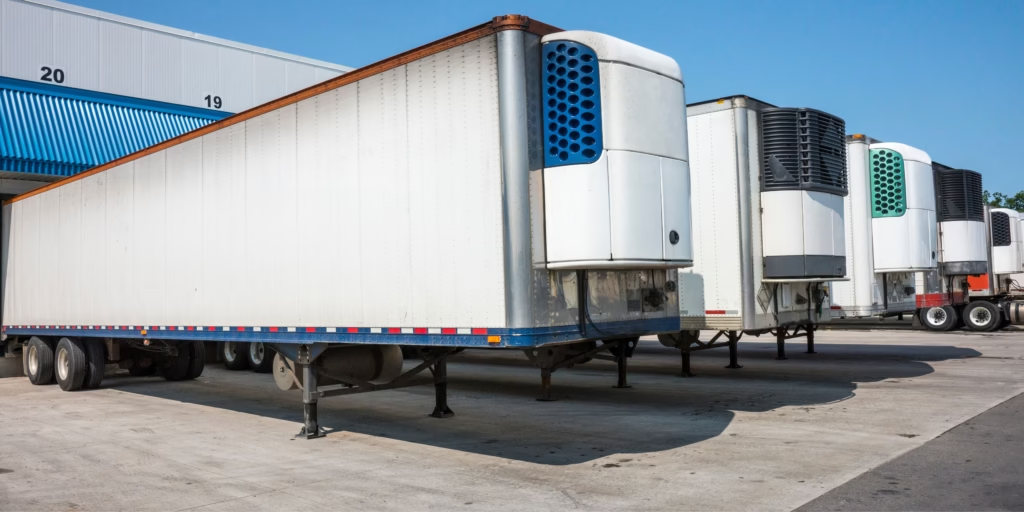
Core Insurance Policies for Temperature Controlled Transport
When operating temperature controlled HGVs in the UK, several fundamental insurance policies form the backbone of your protection strategy.
Third-party liability cover represents the absolute minimum legal requirement, covering damage to other vehicles and property in the event of an accident. However, this basic coverage provides no protection for your own vehicle or the temperature sensitive cargo you’re transporting. A significant gap that could prove financially devastating.
Comprehensive policies offer substantially better protection, covering damage to your vehicle regardless of fault, along with fire and theft protection. For temperature controlled transport operators, this broader coverage is typically essential given the high value of refrigerated units and the specialised nature of the equipment.
Goods in transit insurance becomes particularly crucial when transporting temperature sensitive cargo. Standard goods in transit policies may not adequately cover the specific risks associated with temperature controlled transport, such as refrigeration failure or temperature excursions. Specialist goods in transit policies designed specifically for cold chain logistics will include provisions for cargo spoilage due to mechanical failures or temperature deviations.
Public liability insurance protects your business from claims made by members of the public who may suffer injury or property damage as a result of your operations. For example, if a refrigeration unit leaks chemicals or causes environmental damage, public liability coverage would protect against resulting claims.
If you employ drivers or other staff members, employer’s liability insurance isn’t just recommended, it’s a legal requirement with minimum coverage of £5 million. This protects your business from claims made by employees who suffer injury or illness as a result of their work.
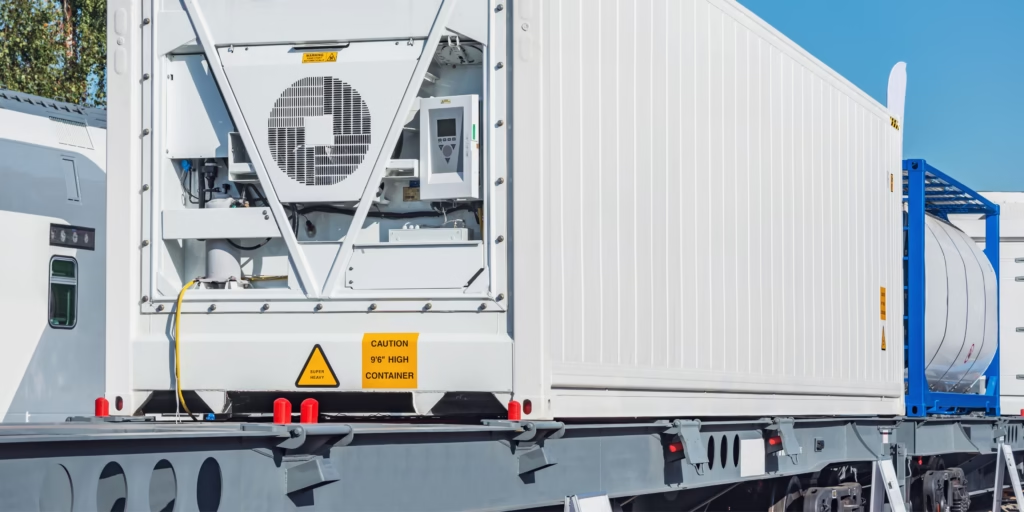
Specialised Coverage Options for Temperature Controlled HGVs
Standard commercial vehicle insurance policies rarely address the unique challenges faced by temperature controlled transport operators. To ensure comprehensive protection, consider these specialised coverage options:
Refrigeration breakdown cover stands as perhaps the most critical specialised insurance for temperature controlled transport. This covers the cost of repairs to refrigeration units and, crucially, the value of cargo lost due to refrigeration failures. Without this specific coverage, a simple mechanical failure could lead to catastrophic financial losses, particularly when transporting high-value pharmaceuticals or premium food products.
Temperature breach insurance provides protection against claims resulting from cargo spoilage due to temperature excursions, even when the refrigeration unit itself hasn’t failed. This might occur during loading/unloading or as a result of calibration errors.
Mechanical breakdown extensions specifically for refrigeration systems go beyond standard breakdown cover, including provisions for emergency repairs to refrigeration units and temporary refrigeration solutions to safeguard cargo while repairs are underway.
ATP certification protection covers the risks associated with international transport of perishable foodstuffs. The Agreement on the International Carriage of Perishable Foodstuffs (ATP) sets standards for equipment used in cross-border temperature controlled transport, and failure to meet these standards can result in significant penalties.
Specialised electronics and control systems coverage addresses the sophisticated technology increasingly used in modern temperature controlled transport. From real time temperature monitoring to automated climate control systems, these technologies represent significant investments requiring specific protection beyond standard vehicle insurance.
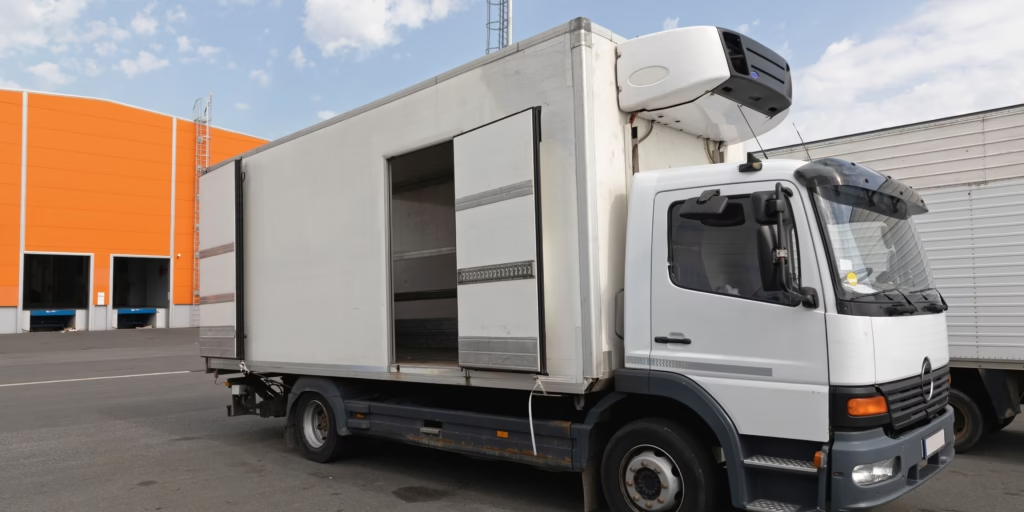
Risk Factors Affecting Temperature Controlled Transport Insurance Premiums
Multiple factors influence the cost of insuring temperature controlled HGVs in the UK market, and understanding these can help you secure more favourable rates.
Driver experience and training play a crucial role in risk assessment. Insurers recognise that operating temperature controlled vehicles requires specialised knowledge beyond standard HGV operations. Drivers trained specifically in temperature controlled transport procedures, including proper pre-cooling techniques, loading procedures, and emergency response protocols, typically command lower premiums.
Vehicle age and maintenance records significantly impact insurance costs. Modern refrigerated vehicles equipped with advanced monitoring systems and redundancy features represent lower risks than older models. Regular maintenance specifically addressing refrigeration components, with comprehensive documentation, can substantially reduce premiums.
Route analysis affects risk calculations, with insurers considering traffic patterns, road conditions, and climate variables along your typical routes. Urban deliveries with frequent stops present different risks than long haul motorway transport, and premiums are adjusted accordingly.
The nature of goods transported directly influences insurance costs. Pharmaceuticals, for example, typically require more precise temperature control than frozen foods and carry higher values, resulting in higher premiums. Similarly, multi-temperature vehicles transporting goods with varying temperature requirements face more complex risk profiles than single-temperature transport.
Claims history remains one of the most significant factors affecting insurance costs. A history of temperature excursions or refrigeration failures will invariably lead to higher premiums, while a clean record demonstrates effective risk management and operational excellence.
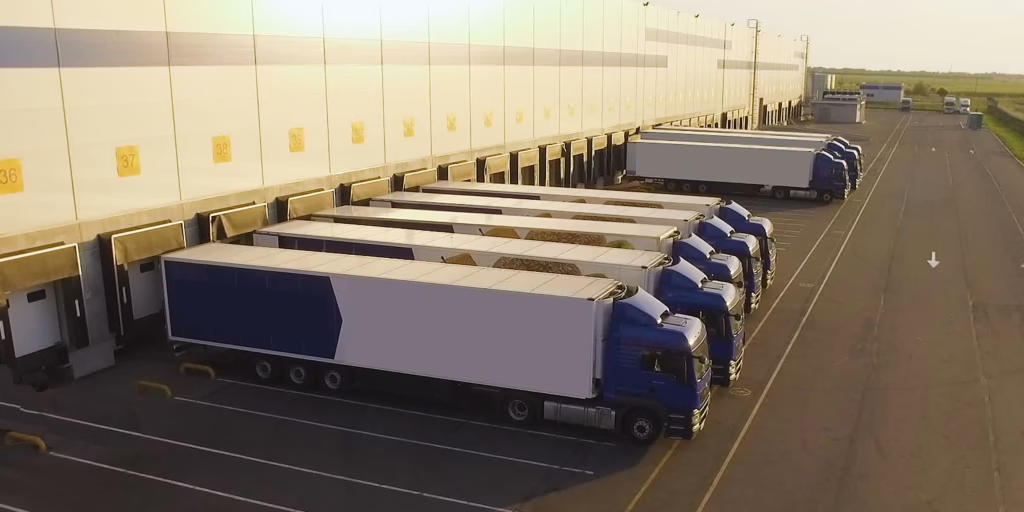
Best Practices for Cost Effective Coverage
Implementing effective strategies can help secure comprehensive cover at competitive rates while enhancing operational safety.
Temperature monitoring systems with real time alerts can significantly reduce premiums by demonstrating proactive risk management. Systems that document continuous compliance with temperature requirements provide invaluable evidence in claims situations and signal to insurers that you’re actively managing risk.
Fleet safety programmes focusing specifically on temperature controlled transport challenges demonstrate commitment to risk reduction. Driver training addressing the unique aspects of refrigerated transport, along with regular skill assessments, can lead to premium reductions while enhancing operational safety.
Bundling multiple policies with insurers specialising in temperature controlled logistics often results in substantial savings. Working with brokers who understand the specific challenges of cold chain logistics can help identify comprehensive coverage packages at competitive rates.
Deductible optimisation strategies can reduce premium costs while maintaining protection against catastrophic losses. Higher deductibles typically reduce premiums, but the ideal balance depends on your financial capacity to absorb smaller claims internally.
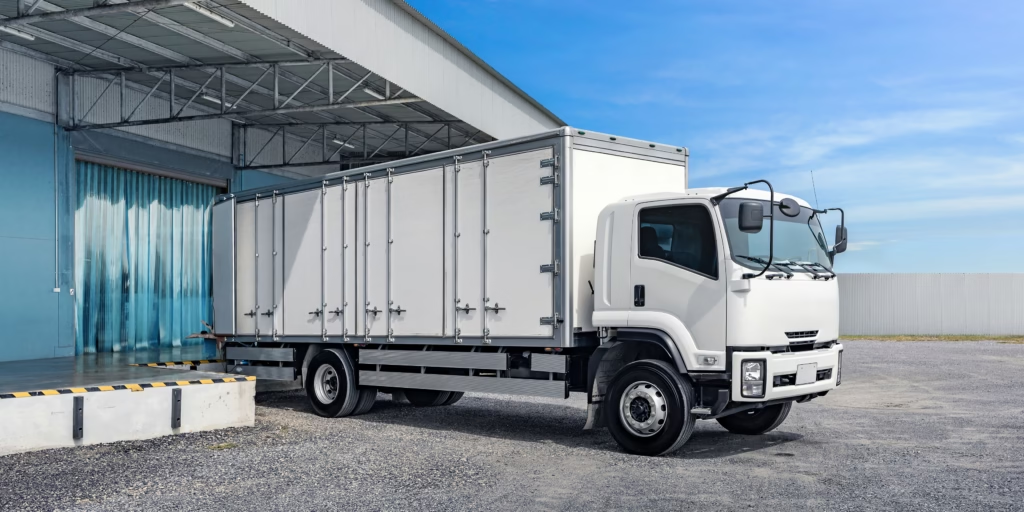
Managing Claims for Temperature Controlled Transport Incidents
Even with comprehensive cover and rigorous risk management, incidents may occur. Understanding the claims process specific to temperature controlled transport can expedite resolution and minimise financial impact.
Documentation requirements for temperature sensitive cargo claims exceed those for standard transport claims. Beyond accident reports and vehicle damage assessments, you’ll need to provide comprehensive temperature logs, calibration records, and cargo condition documentation. Maintaining these records as standard practice ensures you’re prepared when incidents occur.
Temperature logging and verification protocols form the foundation of claims defence. Continuous temperature monitoring with tamper-proof records can demonstrate compliance with required conditions and protect against fraudulent claims. Many insurers now offer premium discounts for vehicles equipped with approved monitoring systems.
Working with specialised loss adjusters familiar with temperature-controlled transport can significantly improve claims outcomes. These professionals understand the unique challenges of assessing damage to temperature-sensitive cargo and can more accurately determine the extent of covered losses.
Timeline considerations take on particular urgency with temperature sensitive cargo claims. Unlike standard property damage claims, perishable goods require immediate assessment, and delays in the claims process can exacerbate losses. Insurers specialising in temperature controlled transport typically offer expedited claims handling for temperature sensitive cargo.
Legal support options included in comprehensive policies can prove invaluable when facing complex claims, particularly those involving international transport or high-value pharmaceuticals. Policies that include access to solicitors with specific expertise in temperature controlled logistics deserve serious consideration.

Conclusion
Securing the right insurance coverage for your temperature controlled HGV transport operations isn’t just about meeting legal requirements, it’s about protecting your business from the unique risks associated with transporting perishable and temperature-sensitive goods. From specialised refrigeration breakdown coverage to comprehensive cargo protection, the right insurance portfolio can mean the difference between a minor setback and a business ending disaster.
Remember that working with insurance providers who understand the specific challenges of temperature controlled logistics can result in both better coverage and more competitive premiums. The UK market offers numerous specialised brokers and insurers with deep expertise in cold chain logistics, capable of creating bespoke coverage packages tailored to your specific operational profile.
Don’t wait for an incident to discover gaps in your coverage! Review your policies today and ensure your temperature-controlled transport operations remain protected throughout 2024 and beyond. With the right coverage in place, you can focus on delivering temperature-sensitive cargo with confidence, knowing that your business is properly protected against the unique risks of cold chain logistics.







